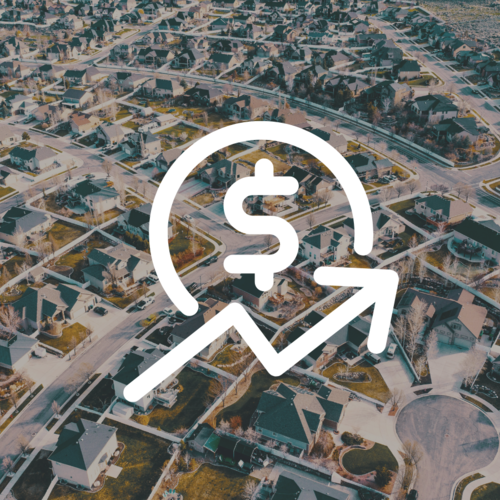Realtor.com published their 2024 Market Forecast with predictions of lower inventory, lower interest rates, and lower home prices. What does this mean for your buying and selling experience in Northwest Denver and beyond? Let’s dive in.
It’s important to remember, that real estate is hyper local, and market trends are incredibly specific down to the neighborhood, especially in some of Denver’s hottest neighborhoods where properties continue to sell within a matter of a couple days to a week.
2024 Market Predictions
A dip in home prices will improve affordability
- Home Prices Initially Increased, Then Stabilized: You’ve seen home prices rise significantly from the second half of 2020 through 2022, following a growth trend that started in 2012. However, as mortgage rates increased, this growth plateaued and even declined in early 2023.
- Brief Dip in Prices: Early 2023 saw a slight decrease in mortgage rates, leading to a resurgence in buyer demand. This competition prevented home prices from reaching new monthly highs, but they still climbed, with the 2023 median expected to slightly exceed that of 2022.
- Buying a Home Remained Costly: Despite the brief easing of prices, buying a home with a mortgage continued to be expensive. Since May 2022, purchasing a typical home required more than a quarter of the average household income, hitting 39% in October 2023. This percentage is significantly higher than the historical average of around 21%.
- Forecast for 2024: It’s anticipated that the alignment of home pricing with financing costs will start in 2024. Home prices are expected to decrease slightly by less than 2%. With lower mortgage rates and income growth, the cost of a mortgage relative to median income will improve to an average of 34.9% in 2024, potentially dropping below 30% by year-end.
Home buyers may have less inventory to choose from
- Declining Housing Inventory: You’ve noticed that even before the pandemic, the number of available homes was decreasing. This was due to insufficient construction not keeping up with the formation of new households, resulting in a tight housing market. Both homeowner and rental vacancies are below historical averages.
- Existing Home Market Struggles: The lack of excess housing capacity is especially evident in the for-sale home market. The number of existing homes available for sale has significantly reduced. With home sales expected to remain low, the inventory of unsold homes is also anticipated to stay minimal.
- Mortgage Rate Impact: Although mortgage rates might start to decrease, they are expected to average over 6.5% for the year. High rates contribute to the ‘lock-in effect’, where current homeowners are reluctant to sell due to the favorable mortgage rates (under 4% for two-thirds of outstanding mortgages and less than 6% for over 90%) they currently enjoy.
First time buyers see signs of improvement
- Challenges for First-Time Homebuyers in 2024: You’ll continue to encounter a tough housing market in 2024, but there are signs of improvement. The proportion of income needed to buy a median-priced home is expected to start declining, thanks to easing mortgage rates, softening home prices, and rising incomes.
- 2023 Financing Costs: The average monthly cost of financing a typical home for sale in 2023 is expected to exceed $2,240. This represents a nearly 20% increase from 2022 and is about double the typical payment for buyers in 2020, consuming nearly 37% of the average household income.
- 2024 Forecast: There’s a ray of hope for 2024 as modest price declines and lower mortgage rates are anticipated. The average purchase cost is expected to drop slightly below $2,200, which would represent nearly 35% of income. Though this is still higher than the historical average, it’s a significant step towards a more buyer-friendly market.
While Wheat Ridge, Denver, Lakewood, and other Colorado cities tend to not necessarily align with national averages number-wise, the sentiment of the national market is still a key tool to preparedness if you’re considering a move in 2024.
If you’re interested in a more in-depth breakdown of your local market, let’s connect and discuss your 2024 goals.




